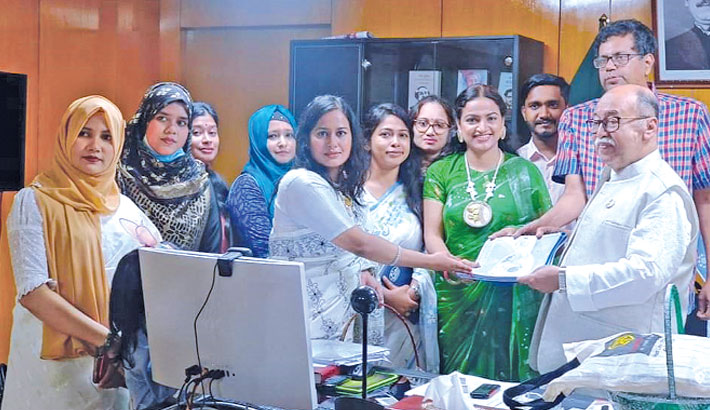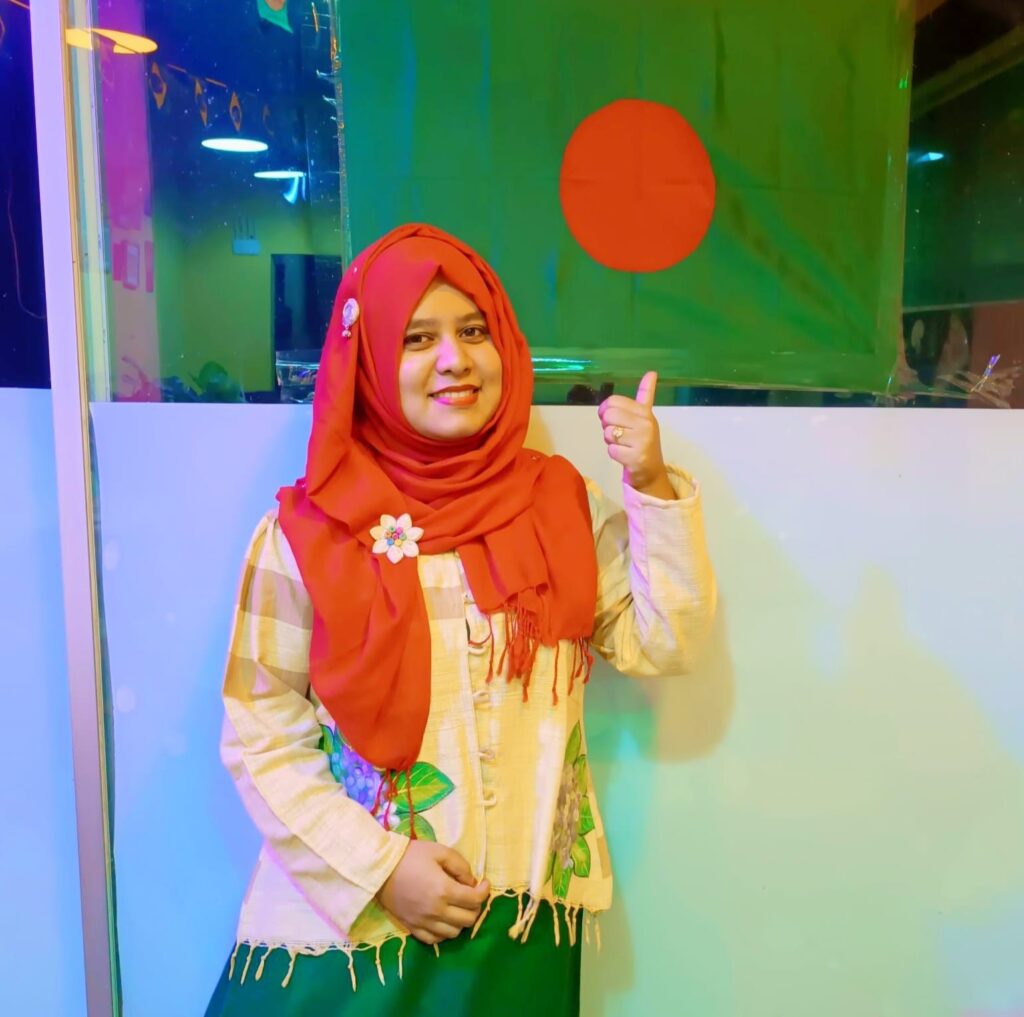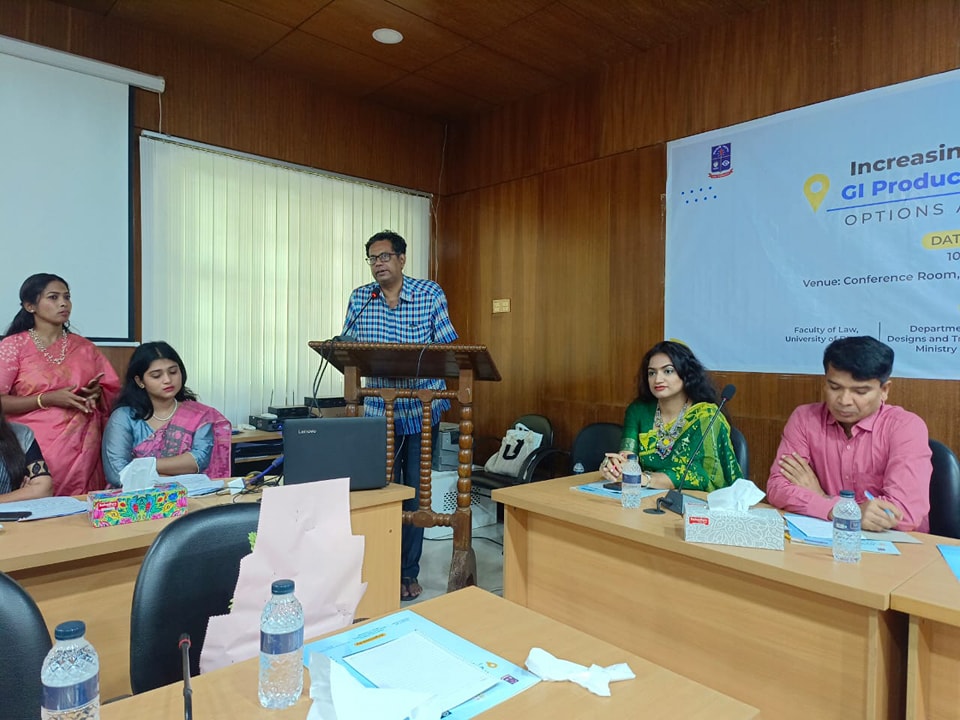Narsingdi is one of the neighboring districts of the capital Dhaka. Narsingdi district holds a significant place in terms of its history, tradition, economic contribution and geography. Though predominantly an agrarian economy, the district’s weaving industry has always made major contributions since ancient times. Due to the quality of its soil, water and climate, Narsingdi offers some exclusive products with distinctive features, which can potentially obtain geographical indication (GI) status. Here goes a brief description of five of such unique products:
Amrita Sagar BananaNarsingdi’s Sagar bananas feature a distinctive taste and flavor, and come in a different size compared to that of other regions of the country. The same banana, when produced elsewhere, does not offer the same taste. This unique taste of Amrita Sagar banana stems from Narsingdi’s soil and climate. Narsingdi has been producing this particular banana for a few centuries now. Once grown, these bananas are transported by truck to other districts of the country including the capital city Dhaka. It is known that a local train dedicated to export bananas was named ‘Banana car’ during the Pakistan period. In addition, all the trains on Dhaka-Chattogram and Dhaka-Sylhet routes used to accommodate separate compartments for carrying bananas. It is also known that, due to the pre-eminent taste and flavor as well as attractive color and size, bananas from Narsingdi used to get preference in the daily diet of the Nawabs of Dhaka. Banana cultivation is the source of employment for a large number of people in Narsingdi. There are many banana farmers who have been producing Amrita Sagar bananas for generations, thus, benefitting themselves financially. For many, banana farming is the primary source of earning livelihood.

A grpup of Deshi Ponno E-commerce entrepreneurs, led by Kakoly Talokder,president of e-Commerce
Development Center(EDC), recently met Industries Minister Nurul Majid Mahmud Humayun to request him take more initiatives on Geographical Indication.
Handloom Fabrics
The handloom industry has been making significant contributions to Narsingdi’s economy for a long time. The industry directly and indirectly provides employment to 5 lakh people. Using their creativity, weavers weave multipurpose fabrics. Of them, sari, lungi, orna, punjabi etc. are the notable ones. Some also exhibit their brilliant craftsmanship through their work of artistry. This way, they earn their bread and butter. Around 80 to 90 thousand handlooms are still operational in the district while competing with well-equipped modern factories. Having met the local demands, Narsingdi’s handloom fabrics have widened their reach in the global market as well. As a result, the economy of Narsingdi is getting enriched. According to different news sources, the textile industry of Narsingdi contributes 70% of the country’s total textile outputs. Narsingdi has a long history of producing handloom products, and Baburhat bears the testimony to the district’s rich handloom history. For over 300 years, Baburhat has been a pre-eminent marketplace for various handloom products. The weekly business transactions of the hat are estimated in crores.
Badsha BhogBadsha Bhog is a famous sweet item of Narsingdi. Despite having a close resemblance with Rosogolla (also pronounced as ‘Rasgulla’ at some places), Badsha Bhog is different both in size and taste. It has a history of around more than hundred years, with various sweet shops at Narsingdi making it for generations. With a GI status to its name, Badsha Bhog’s branding can be accelerated in the global market, given the love Bengalis universally nurture for sweets around the world. Moreover, Badsha Bhog can also get regular exposure as a local (deshi) product through e-commerce; and a steady, regular supply of it can also be ensured as it comes from a district adjacent to the capital. As a result, the fame and demand of Badsha Bhog will keep on growing, which in turn will contribute to creating more employment.
Lotkon
Lotkon is a very familiar fruit. It is produced across the country including Narsingdi. However, Narsingdi’s lotkon is different in terms of its high yield, taste and size, due to the region’s favorable soil and climate. Many call Narsingdi ‘the land of lotkon’ because of its widespread cultivation of the fruit. Lotkon cultivation is growing in the district every year. A large number of tourists visit the district during the harvesting season of lotkon between Joishtho and Shrabon (of Bengali calendar, corresponding to a period from mid-May to mid-July of English calendar) when bountiful lotkon orchards make for a great view for the visitors. The cultivation of lotkon has proven to be commercially profitable too, thus, creating an additional income opportunity for the local people. A large number of people are now involved in lotkon cultivation in the district, with Raypura, Shibpur, Belabo and Monohardi upazilas particularly making a name for the region in lotkon production. Besides catering to the local demands across the country, Narsingdi’s lotkon are also exported to foreign markets including the Middle East. This way, lotkon is strengthening Narsingdi’s economy. Once obtained the GI recognition, Lotkon’s familiarity and branding will be enhanced manifold in the international market. And it will make for a greater production opportunity, which in turn will create more employment and pave the way for increased foreign exchange earnings.
Colombo Lemon
Commercially cultivated, scented variety of lemon, Colombo, is extending Narsingdi’s fame abroad, beyond the country’s boundary. It is bigger in size compared to other varieties, as well as juicy and scented. This lemon is exclusively produced in Narsingdi due to the special quality of the soil of this region. Colombo lemons are grown round the year thanks to the favorable climate and environment. At present, farmers in four upazilas of the district- Shibpur, Belabo, Monohardi and Raypura – are commercially farming Colombo lemon in 1100 orchards spread over 200 hectares of land. Every year, over 60,000 kilograms of Colombo lemon are exported to 27 countries of European Union including Italy, France, Switzerland, Germany, Norway and Finland, after having met the local demands. Hundreds of farmers have turned their fortune by cultivating this lemon. Hence, the educated youths of the district are also turning towards Colombo farming. The lemon is not too juicy, but its thick peel possesses a sweet flavor which is its specialty. So, the peel of this lemon is consumed in various ways. The peel is also used to make pickles.
The writer is the President of EDC.
Email: president@edcbn.com



